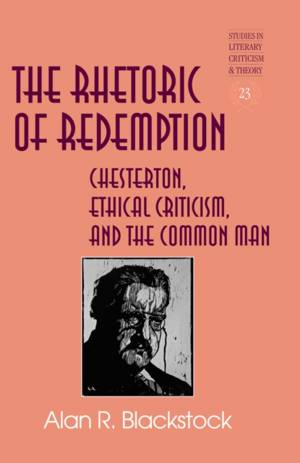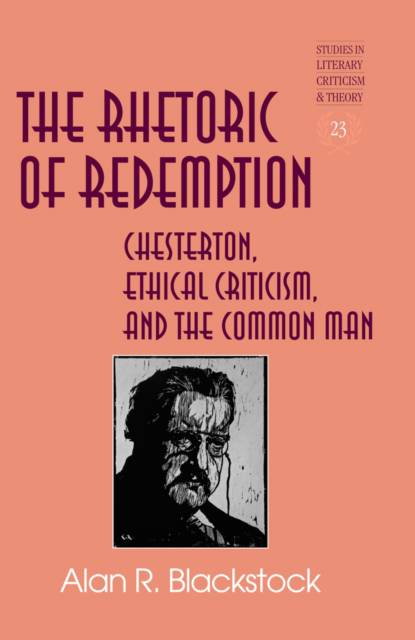
- Afhalen na 1 uur in een winkel met voorraad
- Gratis thuislevering in België vanaf € 30
- Ruim aanbod met 7 miljoen producten
- Afhalen na 1 uur in een winkel met voorraad
- Gratis thuislevering in België vanaf € 30
- Ruim aanbod met 7 miljoen producten
Zoeken
€ 62,95
+ 125 punten
Omschrijving
"The Rhetoric of Redemption: Chesterton, Ethical Criticism, and the Common Man" examines the literary criticism written by G. K. Chesterton between 1902 and 1913 from a rhetorical standpoint to ascertain whether Chesterton did in fact create the -criticism for the common man- he aimed for. To answer this question, this book explores the relationships among writers, readers, books, and critics both during the time Chesterton first began writing and in the context of rhetorical and critical tradition from Plato to the present day. Ultimately, this book argues that Chesterton's unorthodox approach to literature, while still dismissed by the academic establishment, raises fundamental questions about the nature and function of literature and criticism that need to be raised anew in every generation and especially in the wake of each new critical episteme.
"The Rhetoric of Redemption" is extremely useful for both scholars and students of literary criticism and Chesterton enthusiasts who are interested in his approach to literature. This book would also be a valuable resource for courses in nineteenth-century British literature, literary criticism, and rhetorical analysis."
"The Rhetoric of Redemption" is extremely useful for both scholars and students of literary criticism and Chesterton enthusiasts who are interested in his approach to literature. This book would also be a valuable resource for courses in nineteenth-century British literature, literary criticism, and rhetorical analysis."
Specificaties
Betrokkenen
- Auteur(s):
- Uitgeverij:
Inhoud
- Aantal bladzijden:
- 135
- Taal:
- Engels
- Reeks:
- Reeksnummer:
- nr. 23
Eigenschappen
- Productcode (EAN):
- 9781433119804
- Verschijningsdatum:
- 27/11/2015
- Uitvoering:
- Hardcover
- Formaat:
- Genaaid
- Afmetingen:
- 232 mm x 158 mm
- Gewicht:
- 319 g

Alleen bij Standaard Boekhandel
+ 125 punten op je klantenkaart van Standaard Boekhandel
Beoordelingen
We publiceren alleen reviews die voldoen aan de voorwaarden voor reviews. Bekijk onze voorwaarden voor reviews.











